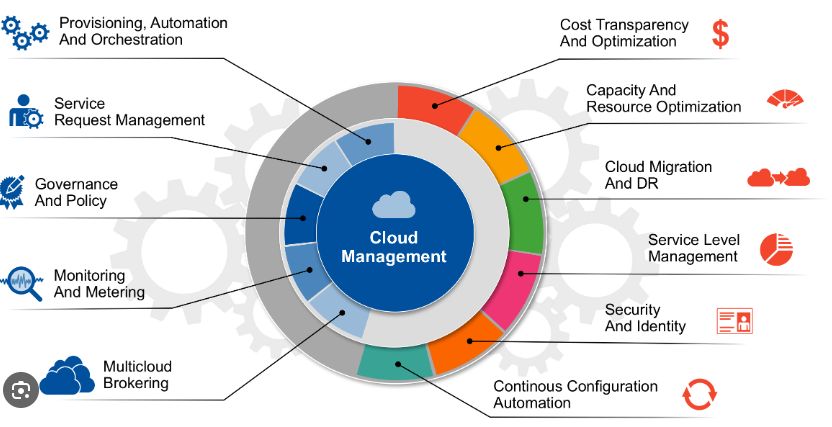IT and Administration
Introduction
System administrators are professionals who handle multiple responsibilities and are also rightly considered the jacks of all trades. The growing technology industry requires professionals who can oversee various domains such as network, internet, servers, programming and security, to name a few. This is where system administrator skills come into play. These professionals are adept at handling various software and continually keep evolving or upgrading their knowledge to keep up with the changing technology.
Administrative and Managerial Duties :
Administrative and managerial duties are essential for any business to succeed. They involve the organization of resources, management of tasks, and development of strategies. AI technology can help streamline mundane administrative duties such as paperwork and filing, freeing up time for managers to focus on more important tasks like strategic planning and team building. AI tools can also help managers more easily analyze data, track performance metrics, and make decisions quickly and accurately.
Who is an administrator?
Administrator is a person who performs a valuable function for the organization by organizing the organization’s operations, improving critical functions, and promoting the achievement of goals. In most environments, administrators create short- and long-term strategies, set goals, and organize efforts to ensure operational success. They oversee processes and support business functions to ensure everything runs smoothly and efficiently. They may hold managerial positions, but they usually support members of their departments and teams to perform their duties. Administrators often direct operations and make decisions to advance the overall goals of their areas of responsibility. You can delegate tasks, customize rules and processes, and assign roles to support project, business, or organizational goals.
Administration Manager responsibilities include:
- Planning and coordinating administrative procedures and systems and devising ways to streamline processes
- Recruiting and training personnel and allocate responsibilities and office space
- Assessing staff performance and provide coaching and guidance to ensure maximum efficiency
- Regularly monitoring networks and servers and maintaining the same
- Installing and upgrading software and hardware
- Creating various user accounts and managing access control options
- Implementing and managing security protocols and procedures
- Maintaining an accurate and detailed documentation of all processes
- Managing data backup and archives
- Retrieving and recovering data as and when required
- Optimizing computer systems by performing diagnostic tests
- Staying up-to-date with the latest developments and changes in the IT sector
- Training and overseeing the activities of other IT technicians
- Developing and implementing error reporting systems
An IT Administrator's daily duties include:
- Managing ticket queues.
- Determining departmental priorities.
- Managing IT teams.
- Resolving software and hardware issues.
- Troubleshooting computer problems.
- Monitoring email usage.
- Changing passwords.
- Monitoring the use of social media.
What skills are useful for IT administrators?
IT administrators must be familiar with various networking technologies, have a firm grasp of computer networking, and understand project management practices. Here are some skills that can help you thrive in IT administration:
Networking skills: IT administrators use their networking skills to install and configure hardware, to ensure the company's networks run smoothly and to ensure end users have the connectivity to perform their jobs.
Database administration: Data is invaluable for many firms because it can give insight into customer preferences and behaviors, allowing companies to serve them more effectively. Using their database administration skills, IT administrators access and manage this critical asset securely.
IT security: Federal regulations require companies to protect user data, which may otherwise be vulnerable to threats like hackers. As an IT administrator, you need strong IT security skills to protect your company's data and systems from these threats.
Cloud management: Cloud computing is the access and use of computing services over the internet rather than from a computer's hard drive. If you work for a company that uses cloud computing, knowledge of its function, the qualities of different cloud services and the security issues surrounding the cloud can help you create an effective and safe cloud infrastructure.
Troubleshooting and problem-solving skills: IT administrators need strong technical expertise and problem-solving skills to identify and resolve any problems with programs and systems within their company's network.
Collaboration: IT administrators need strong collaboration skills, both as team players and as leaders. This skill helps you successfully interact with different personnel at various levels.
End-user training: IT administration entails managing networks and helping other employees. Therefore, it's important to have end-user training as an IT administrator.
Soft Skills
1. Effective communication
Learning to listen and explain things in a simple manner will be essential to your position as a system administrator. As we said in the introduction, you will likely have direct contact with both the IT department and the end-users. Learning how to interact with those groups and considering their different levels of understanding of IT can be challenging, but incredibly worth it.
2. Think proactively rather than reactively
Many people think of sysadmins as soon as something breaks. But a really good system admin has set up things in a way that doesn’t allow much to break in the first place. Most of the work is done behind the scenes – making sure you have a well-maintained IT infrastructure by thinking ahead is what separates the good sysadmins from the great.
3. Flexibility
Finally, there will be those times when things break. And unfortunately, that might be on a Friday evening. If you are the system administrator and the company is losing dollars every second the system is down, which means staying to work late. Similarly, there might be days when you feel there’s not really that much to do. This is why being flexible is going to be important to a system.
